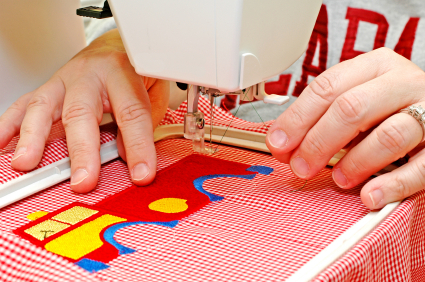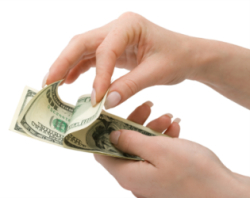Selling At Craft Fairs: Are They For You?
Selling At Craft Fairs: Are They For You?
Published: July 10th, 2016
You love what you create and you love sharing with others. Has anyone ever approached you and said, "You know, you should really consider making and selling these things!" While the compliment is very flattening, you may think that you enjoy making items yourself but wonder whether selling those items would be a good idea. Is it all worth it? It may or may not be.

If you have considered entering your products into a craft fair, it is important to do your homework first. This is very important; because the work you do ahead of time will make sure you are able to get into the fair in the first place! You have a lot to plan for, but first let's make sure this is right for you.
First, you will want to find out where the craft shows are happening. When and where will they be taking place? Call your local Chamber of Commerce.
Look at local community bulletin boards, including school and church fairs.
There are many groups on Facebook that share this information as well.
You may be surprised how many you find once you start looking!
In the craft show market, there are really two different kinds of shows. There are juried and non-juried shows. A juried show is one in which you apply and send in photographs of your items. A selection committee then makes the final decision if you will be accepted to display in that show. Juried shows have a limited number of sellers and the booth costs are likely to be higher. However, the attendance is often greater and there is often more advertising, meaning more prospective customers.
Non-juried shows are those in which all who would like to have a booth are welcome, or are accepted on a first-come, first-served basis. Typically, the booth fees are less than you’ll find for juried shows. Non-juried shows can be a great way to get started in this kind of business.

In addition to finding out the dates, times, and booth price, there are some other important questions to ask the organizer, which include:
- Approximately how many attendees do they expect?
- How many vendors are selling the same type of product as yours?
- How will the craft fair be advertised?
- Find out what is included in the booth price. A Chair? Table? Electricity?
- What commissions need to be paid, if any, to the organizer? Are a percentage of sales taken?
If you're not sure about the kind of show you should attend, then attend as many as you can as a consumer. This will give you a better idea of the shows in which you are interested in participating the next time they are held!
Second, it is important to find out any city or state requirements you have for your area. Because you likely must charge and then pay sales tax on the items you sell, it will be imperative that you register your business with the state and obtain a sales tax certificate. You can find that information by contacting your state agency covering sales tax (often available online). Check with the state and/or the show organizers to find out how the tax is to be collected. At some shows I've sold at, the state tax authorities pass around a certificate that needs to be filled out at the end and then turned in that day rather than filing later. Different states and shows vary, so be sure to find this information out before you begin.

Finally, perhaps the biggest question should be, "Do I have the time I need to invest into preparing for this show?" That is a question that only you can answer for yourself. If you choose to pursue this, then you may want to consider taking a look at your calendar and setting goals and deadlines for yourself to ensure you are not up until 3 a.m. the night before the big show! We've all been there...trust me! Look at giving yourself "office hours" each day when you can spend time each week making the items you will be selling. Be creative in how you streamline the process of managing your time. Rather than planning a large assortment of different items for your booth, consider finding a "niche" and focusing on just a few items so that you can make items in "assembly-line" fashion. This will help not only with your time, but also with your costs...and your sanity!
Preparing for and participating in a craft fair can be a lot of work, and yet very rewarding at the same time. To do what you love and get paid for it at the same time provides much satisfaction. You can feel good about what you are doing, so enjoy the journey! It is definitely a learning process, so don't become discouraged. You will learn new things each time you participate in a show. We wish you all the best in your creative endeavors!


